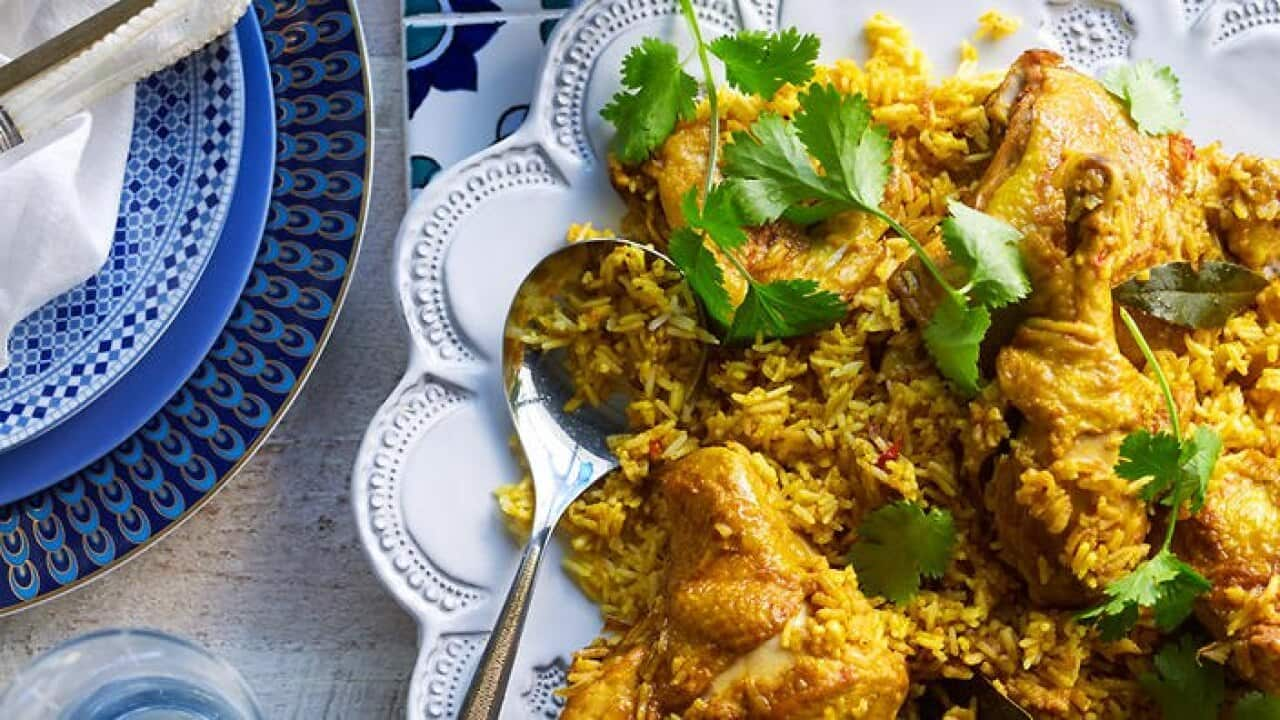When you fast for religious reasons, you go without food because of a range of spiritual and traditional benefits.
As it turns out, fasting to improve your spiritual well-being may also unintentionally improve your physical health.
, an Advanced Accredited Practising Dietitian, tells SBS that a recent focus on the health benefits of intermittent fasting – made famous by Dr Michael Mosley – has cast some light on the physical effects of various religious fasts, like the Islamic tradition of Ramadan.
There’s some evidence out there that shows the positive medical benefits of this kind of fasting, which may be similar to the health benefits of intermittent fasting.
Ramadan is the ninth month of the lunar Islamic calendar. During this period of 30 days, Islamic adults abstain from all food and fluids from sunrise to sunset. “Before sunrise and after sunset, we can consume pretty much anything we like, except the obvious things that are forbidden in Islam like alcohol and pork,” says Breik, who practices Islam.
“There’s some evidence out there that shows the positive medical benefits of this kind of fasting, which may be similar to the health benefits of intermittent fasting.”
, published in the Journal of Family Medicine and Primary Care in 2020, looked at the effects of Ramadan fasting on cholesterol. Researchers compared the total cholesterol and triglyceride levels of 100 people before and after a Ramadan fast. What they saw was a reduction in total cholesterol and triglycerides that occurred because of fasting.
Other studies on Ramadan fasting have shown that the practice of – lunch – may be what helps to control cholesterol and the body’s . When fasting is placed in the context of a healthy diet (when someone eats well from sunset to sunrise), Ramadan fasting may also lead to .
Eleni Georgiou, an Accredited Practising Dietitian, reasons that the block schedule of a Ramadan fast may be what generates such health benefits.
“Due to the complete fasting times of the Islamic culture, it’s more similar to an intermittent fast,” Georgiou says. “It may therefore result in the same positive benefits that a diet such as the 16:8 provides.”
Fasting for spiritual reasons is also quite common across many other religions including Christianity, Hinduism and Buddhism. However, the health benefits that accrue from a Ramadan fast don’t automatically transfer to all fasts. Georgiou says this is because religious fasts differ so broadly in their timings and rules.
Looking specifically at the fasting practices of her own religion – Greek Orthodox – Georgiou explains that the word ‘fast’ is not time-based and not comparable to an intermittent fast. Instead, Orthodox fasting requires the elimination of certain foods.
“There are two main ways to fast during the Greek Orthodox Easter. Some fast for a full 40 days and others fast for the seven days prior to Easter Sunday,” Georgiou states.
“There are varying [levels] of fasts [within the Greek Orthodox religion]. For example, I personally fasted purely from red meat, chicken and fish, and kept my diet predominately vegetarian. However, others choose to follow a strict vegan diet, which excludes all of the above foods as well as dairy and eggs.”
Georgiou says this kind of fasting won’t reduce calories. But adhering to a plant-based diet for a specific period of time can generate positive health benefits.
“Research shows that plant-based diets are usually higher in fibre, magnesium, folic acid, vitamin C, vitamin E, iron, and phytochemicals. They often result in lower consumptions of saturated fats and cholesterol.”
Plant-based diets are typically rich in fruits and vegetables, resulting in lower blood cholesterol concentrations, a lower incidence of stroke, and the risk of mortality as a result of stroke or heart disease.
“Those following a plant-based diet also consume more nuts which are rich sources of healthy fats that help protect our cardiovascular system from diseases such as heart attacks or strokes. In addition, reducing animal fats can also reduce overall inflammation in the body.”
If you’re just eating a high calorie diet that’s high in sugar but contains little nourishment, you may be at risk of weight gain and pre-diabetes by the end of Ramadan.
Words of warning
Although religious fasting can be seen in some to benefit physical health, in some cases it could also do the complete opposite. Breik says the potential to acquire health benefits from a fast will depend on the nutrition you consume when you’re allowed to eat.
"If you’re just eating a high-calorie diet that’s high in sugar but contains little nourishment, you may be at risk of weight gain and pre-diabetes by the end of Ramadan,” Breik adds.
The positive health effects of fasting are also only relevant to healthy individuals. In fact, if you have a pre-existing health condition, fasting may not be recommended.
“Those who have severe iron deficiency or are anaemic should be cautious of how they fast and ensure they make the appropriate substitutions to ensure they still achieve their protein and iron, in particular,” Georgiou warns.
“Pregnant and lactating women should be cautious due to their increased requirements. Also, people who are at risk of eating disorders or disordered eating should avoid [fasting], as this can create a poor relationship with food.”
If you’re in doubt about whether or not you should fast for religious reasons, be sure to consult a medical professional for personalised advice.









